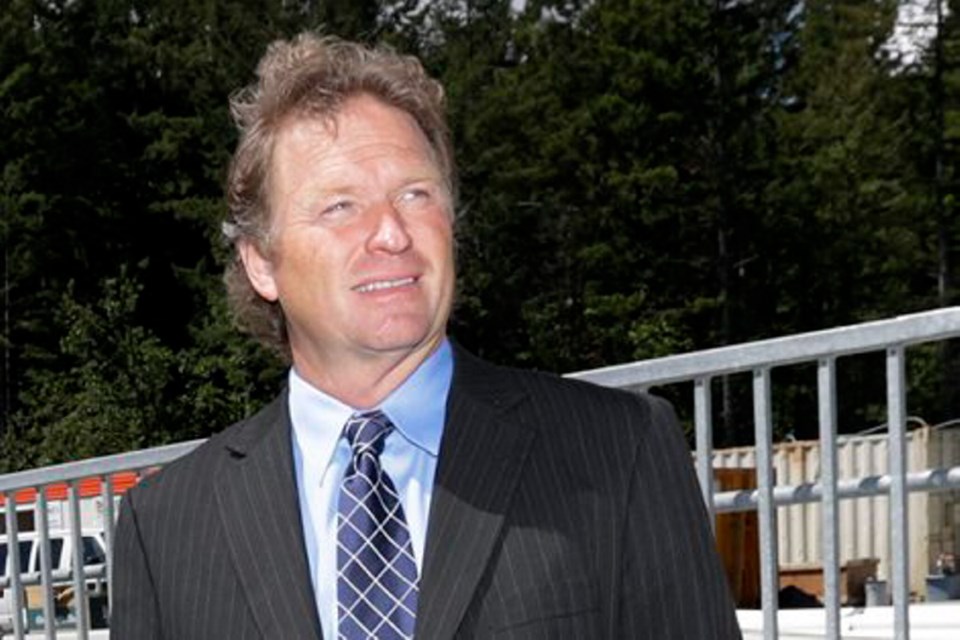Know why Langford had the lowest voter turnout in B.C. in the last civic elections? Because its people were happy.
Langford is a town that gets things done without the process dragging out like the Stanley Cup riot trials (note that two more suspects were charged this week).
It’s go, go, go, grow, grow, grow. Stew Young, mayor since 1993, risks carpal tunnel from all the ribbon-cutting ceremonies. The rest of council have been together longer than most married couples.
If residents didn’t like that approach, more than 14 per cent would have bothered to vote in 2011. We tend to fuss and mutter about a turnout that low, but it can be taken as a sign of satisfaction, not apathy. (In contrast, angry/embarrassed Torontonians swamped this week’s advance polls in Fordville.)
Which means B.C.’s school boards should take low voter interest as a ringing endorsement, right?
Wrong. The B.C. School Trustees Association has just released a public service announcement that basically pleads with somebody, anybody to show up on Nov. 15.
No, that’s an exaggeration. The commercial merely urges people to vote for local voices.
But the truth is, board elections have become the political equivalent of the witness relocation program. If you want to drop out of sight and build a new life of anonymity, run for school trustee.
The perception is that boards have become irrelevant over the past 30 years as the provincial government has, bit by bit, taken their powers. Businesses and other landowners lost interest after 1991, when boards lost the authority to raise property taxes. Collective bargaining, as you will recall from the teachers’ strike, is done at arm’s length, handled by the B.C. Public School Employers’ Association. Each district’s total budget is set by legislature bureaucrats, not local politicians.
With the taxpayer watchdogs largely gone, today’s boards are less broadly based but more focused on actual education.
In fact, four of the nine people elected to the Greater Victoria board in 2011 were current or former teachers. The chairman of the Saanich district, Wayne Hunter, was a career teacher and school administrator before retiring. Benula Larsen, familiar during the strike as the president of the Greater Victoria Teachers’ Association, is running in the Sooke school district.
Teachers are free to be trustees as long as it’s not in the district that employs them. Larsen can’t run in Greater Victoria, where she works, but can in Sooke, where she lives. That’s the opposite of outgoing Greater Victoria trustee Catherine Alpha, a teacher in the Sooke district. (Conflict-of-interest rules required Alpha to leave board meetings whenever teacher negotiations were discussed but, with a long-term contract now in place, that’s not something current candidates need worry about for the next four years.)
Teresa Rezansoff, president of the B.C. School Trustees Association, argues that boards have plenty of relevance.
“We’re that vital and critical link back to the community. Without that link, decisions would be made in a vacuum.” Trustees are the ones who know and reflect the desires of local people, she says. “Trustees are the people you run into in the grocery store.”
Here in the grey-haired capital region, which has 21,000 more senior citizens than kids, education might seem like someone else’s issue. But Rezansoff argues education matters not just to those with children in the system, but anyone interested in B.C.’s future prosperity: “It’s shaped by how well our children are educated.”
She wonders if the strike might have rekindled interest in board elections, particularly among young adults whose school years were marred by labour strife. (Note that the Sooke election features a recent Belmont grad, 19-year-old Ravi Parmar.)
Maybe. With turnout for the last civic elections averaging less than 30 per cent across B.C., you would hope the only way to go is up. The danger with super-low numbers at any level of government is that they allow special interests to wield disproportionate power. (Remember that B.C. cancelled the direct election of hospital boards in the 1980s after they were stacked by anti-abortion groups.)
Democracy is supposed to belong to those who show up.



